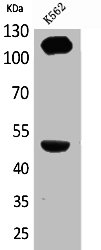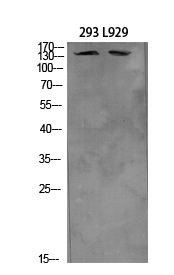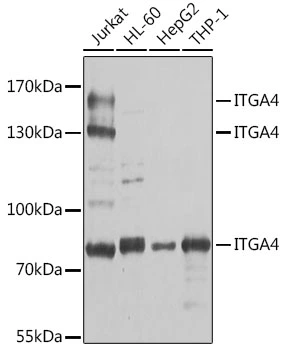Integrin alpha 4 antibody [HP2/1]
GTX76407
ApplicationsFlow Cytometry, ImmunoFluorescence, ImmunoPrecipitation, ImmunoCytoChemistry, ImmunoHistoChemistry, ImmunoHistoChemistry Frozen, Neutralisation/Blocking
Product group Antibodies
ReactivityBovine, Equine, Feline, Goat, Human, Mammals, Mink, Monkey, Mouse, Porcine, Primate, Rabbit, Rat
TargetITGA4
Overview
- SupplierGeneTex
- Product NameIntegrin alpha 4 antibody [HP2/1]
- Delivery Days Customer9
- Application Supplier NoteFCM: 1microg/5 x 105 cells. Neutralizing/Inhibition: . *Optimal dilutions/concentrations should be determined by the researcher.Not tested in other applications.
- ApplicationsFlow Cytometry, ImmunoFluorescence, ImmunoPrecipitation, ImmunoCytoChemistry, ImmunoHistoChemistry, ImmunoHistoChemistry Frozen, Neutralisation/Blocking
- CertificationResearch Use Only
- ClonalityMonoclonal
- Clone IDHP2/1
- Concentration1 mg/ml
- ConjugateUnconjugated
- Gene ID3676
- Target nameITGA4
- Target descriptionintegrin subunit alpha 4
- Target synonymsCD49D, IA4, integrin alpha-4, 269C wild type, CD49 antigen-like family member D, VLA-4 subunit alpha, alpha 4 subunit of VLA-4 receptor, antigen CD49D, alpha-4 subunit of VLA-4 receptor, integrin alpha-IV, very late activation protein 4 receptor, alpha 4 subunit
- HostMouse
- IsotypeIgG1
- Protein IDP13612
- Protein NameIntegrin alpha-4
- Scientific DescriptionThe gene encodes a member of the integrin alpha chain family of proteins. Integrins are heterodimeric integral membrane proteins composed of an alpha chain and a beta chain that function in cell surface adhesion and signaling. The encoded preproprotein is proteolytically processed to generate light and heavy chains that comprise the alpha 4 subunit. This subunit associates with a beta 1 or beta 7 subunit to form an integrin that may play a role in cell motility and migration. This integrin is a therapeutic target for the treatment of multiple sclerosis, Crohns disease and inflammatory bowel disease. Alternative splicing results in multiple transcript variants. [provided by RefSeq, Oct 2015]
- ReactivityBovine, Equine, Feline, Goat, Human, Mammals, Mink, Monkey, Mouse, Porcine, Primate, Rabbit, Rat
- Storage Instruction-20°C or -80°C,2°C to 8°C
- UNSPSC41116161








![FACS analysis of human peripheral blood lymphocytes using GTX76618 Integrin alpha 4 antibody [44H6].](https://www.genetex.com/upload/website/prouct_img/normal/GTX76618/GTX76618_4124_FACS_w_23051501_101.webp)